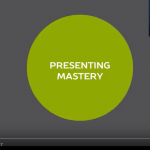

Conducting the Perfect Meeting for Account Managers
How many times have you sat in a meeting and thought ‘why am I here?’.
If you do feel like this regularly in your account management role, check out this video where I help you make sure that becomes a thing of the past.
As an account manager we frequently find ourselves in meetings and often it’s not imperative to be there at all.
How can you prevent people who are invited to your meetings feeling the same?
Make sure you know why you’re having the meeting, who needs to be there, what you’re going to cover, when it needs to end (sooner rather than later) and how you expect the outcomes of the meeting to be followed up.
The Palace model is a simple checklist you can follow to ensure you’re fully prepared and don’t end up wasting time.
 Preparation
Preparation
“Failing to prepare is to prepare to fail”- Benjamin Franklin
Don’t let yourself be the one to look totally out of control of any meeting, set a clear objective for the meeting, make sure everyone agrees what you want to achieve by the end of the meeting.
Never have more people invited or present than needs to be there. The rule of thumb is to invite the same or less number of people the client is inviting along.
Check Linked-in profiles of anyone attending the meeting that you don’t know.
Make sure you’re covered in terms of logistics; allow yourself time to find the venue (and get lost a little bit!) if it’s a new location for you.
Don’t set the meeting for an hour if you don’t really believe it’ll take that long to reach your objective – did you know that once interrupted it takes 15 minutes to get back to the level of concentration you had previously. This means you’ll be spending 30 minutes before and after the meeting trying to get back to work you’d left.
Agenda
Send an appointment before the meeting with any log-in details if you’re conducting the meeting virtually. Send a quick agenda in advance asking if anyone has any additional points they’d like to cover.
Logistics
Make sure there’s a backup of any presentation materials you’re planning to take with you, think about the horrible scenarios you could experience; leave the presentation on the train, lose your laptop, forget your power lead etc.
Always have a backup in the cloud, on a memory stick and even in hard copy format for extra security!
Who will take notes during the meeting? Who will open up the meeting? Who is going to fetch the teas and coffees? Think about each person in your team and what role they should be playing.
Leave plenty of time to get to the meeting and don’t arrive looking like a rabbit caught in the headlights because your train was late ;-).
Agree timings and objective upfront
If you’re conducting the meeting it’s reassuring for everyone involved for you to set the tone of the meeting by reiterating your objective and what time you’ll end the meeting. Some people may have other meetings to go to so don’t assume the meeting can run on, this shows you are respecting everyone’s time.
Communication styles
If you know the participants of the meeting and understand their preferred communication styles, think about how best you should conduct the meeting. Check out social styles to understand how we all have preferred communication styles and being versatile to consider them will be to your benefit.
For example, don’t waste the first part of the meeting asking how everyone’s weekends went if you know you have Drivers (who are known to be ‘task’ oriented rather than ‘people’ oriented) present. They just want to get on with it, reach a conclusion and move on.
If you’re interested in how you can use social styles to your advantage or want to learn how to maximize the quality of your relationship with the client you we cover this in more depth in my Account Manager Success Plan online training.
Efficient follow-up
A quick note sent to the participants summarizing the key actions agreed during the meeting demonstrates a) you were listening and b) you are taking the lead in making sure things get done (demonstrates competence) and c) shows initiative and great customer service.
So don’t get caught out again being unprepared.
What is missing from this list? Let me know and how you are developing your account management skills.

Join the discussion One Comment